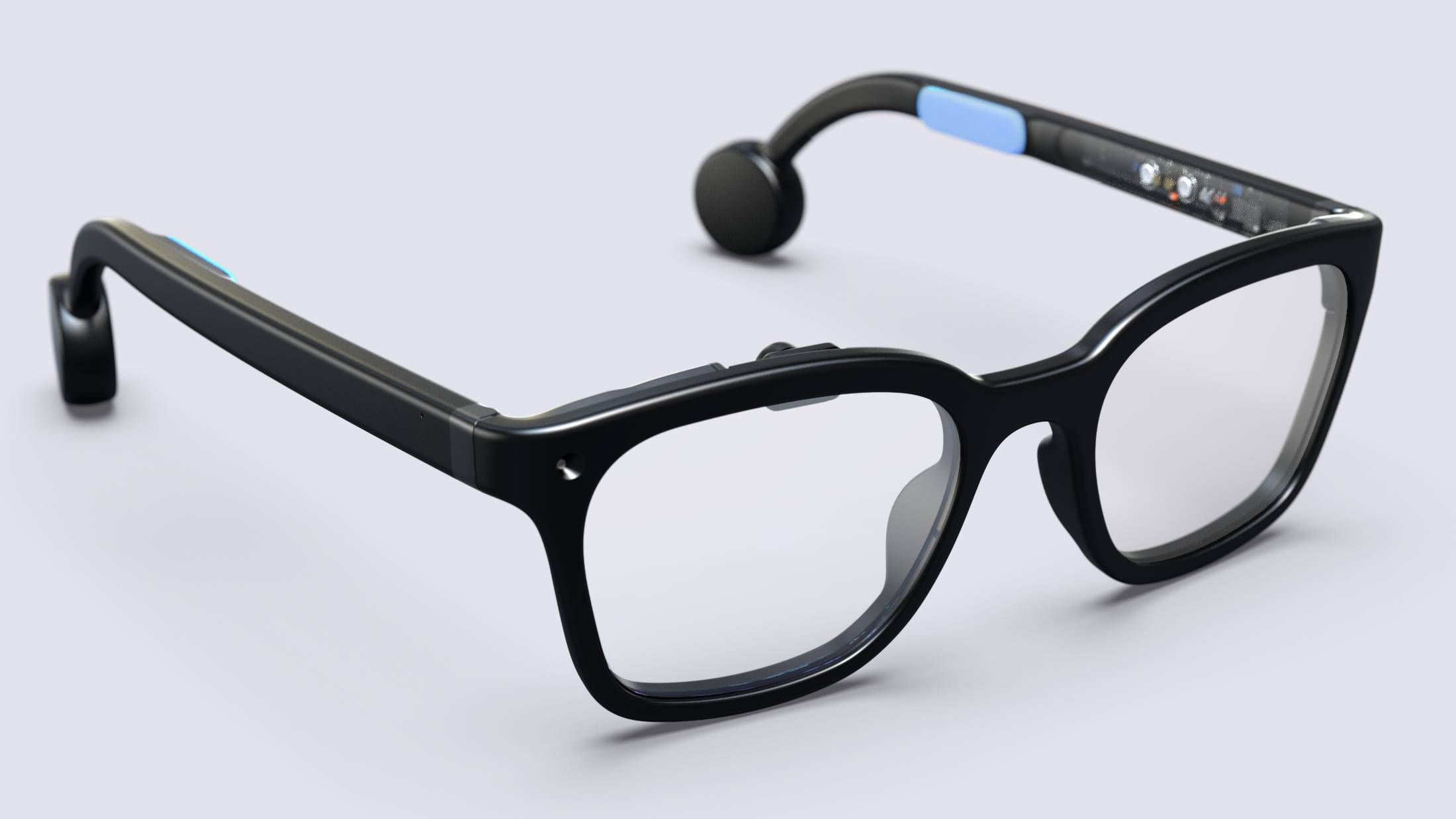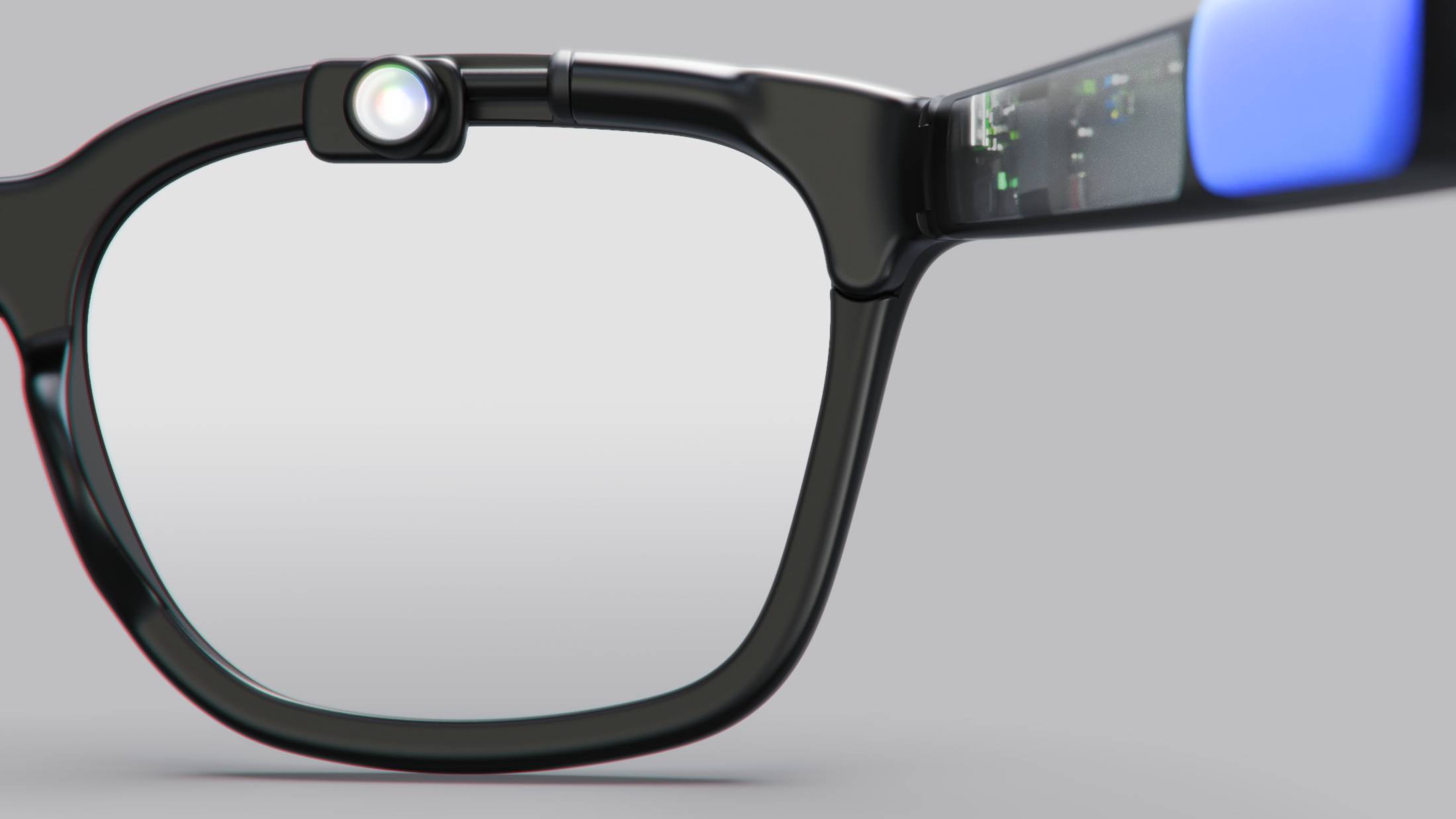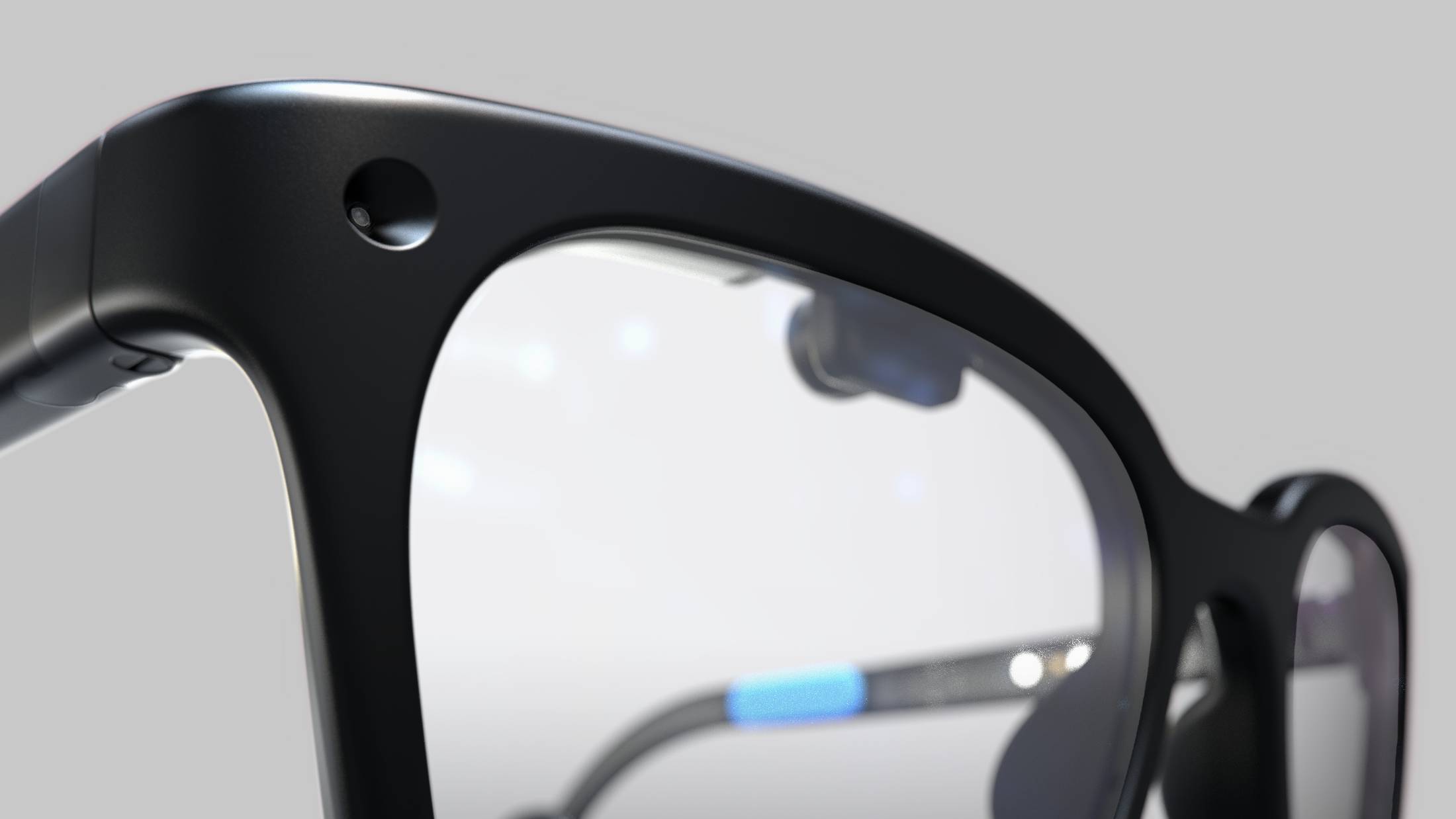Brilliant Labs unveils Halo, the 'world's thinnest AI glasses' — and it wants to be your everyday specs
These smart glasses will never let you forget a conversation

Brilliant Labs, led by former Apple employee Bobak Tavangar, has announced Halo, the latest pair of AI smart glasses that aims to be your next everyday specs — and they come packed with industry-first AI features.
Claimed to be the "world's thinnest AI glasses", Halo features many of the tools from Brilliant Labs' previous Frame smart glasses. But you'll also find major updates to its AI capabilities and an all-new everyday eyewear design, with a built-in display, optical and motion sensors, bone conduction speakers and prescription lenses available.
But the real focus here is all about its AI toolkit, as Halo has a few nifty tricks up its sleeve. The fully open-source AI glasses come with three standout features:
- Conversational AI agent, Noa: Offering real-time contextual information on what it hears and sees in the environment you're in, with privacy protection measures at a system level to keep interactions private by default (like a VPN).
- Long-term agentic memory, Narrative: Brilliant Lab's patent-pending tech that helps you remember details "years or even decades later" from conversations or objects that you see (not unlike Ray-Ban Meta's visual reminders)
- Vibe coding assistant, Vibe Mode: An experimental feature from Brilliant Labs that allows Halo to create custom apps just by asking it, using natural language voice commands.
While AI glasses like the Ray-Ban Meta smart glasses offer features that utilize conversation AI agents and the like, Halo aims to take it a step further with its new array of AI tools — all designed to work in thin, lightweight glasses at 1.4 ounces (40 grams) with a casual, everyday style. Let's dive into the details.
An everyday design

Out of the best smart glasses around today, Halo leans towards the Even Realities G1 smart glasses rather than the Viture Luma Pro, with a 0.2-inch full-color microOLED heads-up display that offers a "retro arcade-style UI" rather than a full-blown virtual monitor setup.
Similar to Even Realities, the smart glasses appear to house a lot of tech in the temples and temple tips, which allows for the glasses to look more casual eyewear rather than ones that look like a chunky block on one's face.
Moreover, the AI glasses come with AI optical sensors to capture what you see, along with a "novel imaging and compression technique optimized for AI" to allow for longer battery life. Brilliant Labs claims Halo offers up to 14 hours of battery life.
Get instant access to breaking news, the hottest reviews, great deals and helpful tips.
The smart specs also include built-in bone conduction speakers to allow for real-time conversations with its AI agent Noa, along wth a microphone array. Plus, it comes equipped with an IMU for motion sensing.
As you'll find in the shots, the glasses appear to look more natural compared to other smart glasses on the market (swipe right for what Halo would look like on a dog).


Brilliant Labs has included prescription lens options for its Halo AI glasses via its partnership with SmartBuyGlasses. Out of the box, Halo will come with non-prescription lenses with anti-reflective coating, but lens options are available for astigmatism, single vision, blue light, and sunglasses.
Halo brings the AI features

Halo is set to deliver the company's next step in AI, and it will be interesting to see how its features measure up to the rumored "Meta Celeste" smart glasses and Apple Glasses.
While the AI agent Noa can already be found in the Frame smart glasses, Brilliant Labs states the AI assistant now won't just respond, but also act on command. This includes muting the microphone and camera, entering sleep mode and more just by speaking to it.
Speaking of, the Vibe Mode is a new experimental feature straight from Brilliant Labs, allowing users to speak with Noa to create custom applications. That's all without needing to know how to code.
Just tell Noa what you need, and it will generate an app within seconds that's tailored to your preferences
Brilliant Labs
"Just tell Noa what you need, and it will generate an app within seconds that's tailored to your preferences," Brilliant Labs states. "For example, if you're a developer with an idea for a better maps application for AI glasses, which is better suited to how you navigate cities, you can prompt Noa, which will instantly query its AI coding agent to build, display and run your custom Halo application right before your eyes."
It's an interesting trick for a pair of smart specs, and Halo users will also be able to share these apps with others, along with being able to remix existing generated apps and build on the functionality.
Finally, Halo also offers a long-term agentic memory system, named Narrative. This essentially can recall past conversations or objects seen (via the built-in optical sensor and microphone) to help you remember what you've experienced. Or, you know, remember the name of someone you just met.
"Halo is designed to act as an extension of your eyes and ears, tuned to remember and reason over your daily first-person POV experiences," Brilliant Labs claims. "In fact, while both audio and video are captured using Halo, Noa’s Narrative capability analyzes the context of your life and builds a private and personalized knowledge base."
Brilliant Lab's Halo AI glasses are set to ship globally in late November 2025, with prices at $299 in Matte Black via the Brilliant Labs website. However, as per the company, Halo will follow the same limited release model as the recently sold-out Frame, with only a limited number of units being made available for purchase.
Follow Tom's Guide on Google News to get our up-to-date news, how-tos, and reviews in your feeds. Make sure to click the Follow button.
More from Tom's Guide
- I spent my first 24 hours with the Oakley Meta HSTN glasses — they're brilliant except for one glaring problem
- I replaced all my monitors with the Viture Luma Pro — here’s why they take the fight to Xreal for the best AR glasses crown
- I spent $12 on this essential Meta Quest app that upgrades visuals in VR games — and it makes a huge difference

Darragh is Tom’s Guide’s Computing Editor and is fascinated by all things bizarre in tech. His work can be seen in Laptop Mag, Mashable, Android Police, Shortlist Dubai, Proton, theBit.nz, ReviewsFire and more. When he's not checking out the latest devices and all things computing, he can be found going for dreaded long runs, watching terrible shark movies and trying to find time to game
You must confirm your public display name before commenting
Please logout and then login again, you will then be prompted to enter your display name.
 Club Benefits
Club Benefits





